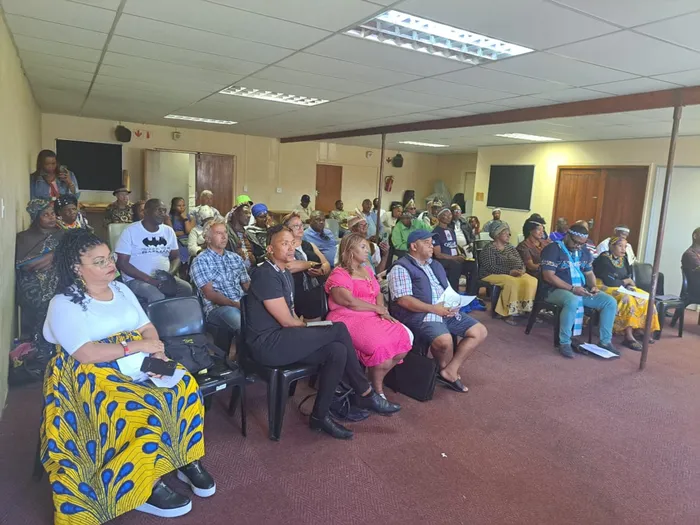Province’s traditional leaders urged to unite

Traditional leaders came to listen to Cooperative Governance and Traditional Affairs Deputy Minister Prince Burns-Ncamashe.
Traditional leaders must find common ground for unity to promote and preserve tradition, customs and cultures, says Cooperative Governance and Traditional Affairs Deputy Minister Prince Burns-Ncamashe.
He was speaking to the leaders at a Langa community hall on Thursday January 9, after being invited by the Congress of Traditional Leaders of South Africa (Contralesa) to address concerns about crime, safety and the status of chiefs in the province.
Prince Burns-Ncamashe told the amakhosi that their future in the province was in their hands, and he urged them to ensure they had access to those in Parliament.
“A good leader is accessible, available and accountable to its people. Our job as leaders in Parliament is to serve you. As a leader, people expect you to be visible, accessible and not just visible but available to serve,” he told them.
Traditional leaders might have vision and aims, but without resources, they could do nothing, he said, adding that people needed a government that heard the cries of its people.
Other issues discussed included the unavailability of initiation sites, recognition of traditional leaders in the province, a lack of resources and funds for chiefs, and initiates’ deaths at circumcision rituals.
The deputy minister thanked the chiefs for inviting him and promised to always be available when needed.
Chief Zwelidanile Galada, chairperson of the Contralesa in the metro, said they had called the deputy minister to discuss culture and traditions. He said circumcision was an issue that affected most chiefs, but he was happy the Western Cape had not seen any recent deaths of initiates.
Another speaker, Western Cape Civil Society Forum chairperson Amelia Mfiki, appealed to the amakhosi to adopt facilities that worked with boys because the country was mostly ignoring boys' needs.
“We need to create a safe space for boys," she said.

